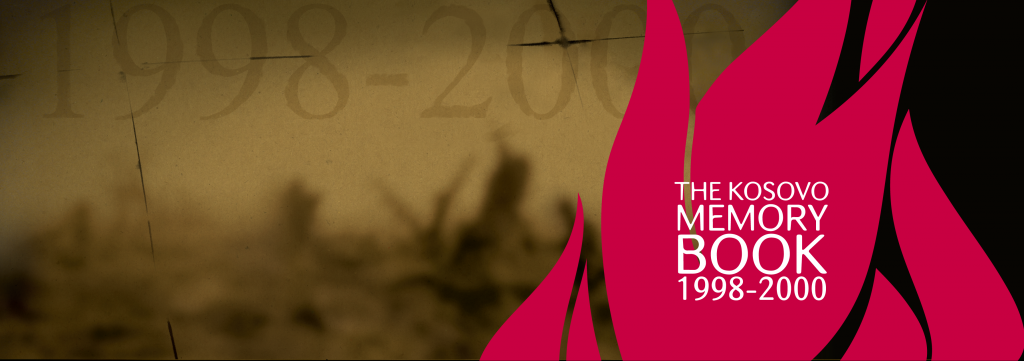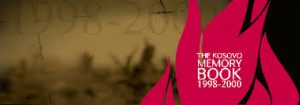
03.04.2015.
The Kosovo Memory Book
The goal of the project The Kosovo Memory Book is to create an individualized list of all those killed and missing in connection with the war in Kosovo in the period from January 1, 1998 to December 31, 2000; to establish the circumstances in which victims lost their lives; and to publish this information in the Kosovo Memory Book (KMB). The backbone of the project is a database consisting of statements from witnesses, family members, court documents, books, media reports and other documents containing information about the actual victims and the circumstances that led to their death or disappearance. The database contains 31,600 documents, including 14,612 witness statements and their family members. The project is jointly implemented by the Humanitarian Law Center, Kosovo and the Humanitarian Law Center. In September 2011, the first volume of the KMB was published, which contains the narratives on each of the 2,046 war victims in 1998.
On the occasion of the International Day of Human Rights, on the website of The Kosovo Memory Book (KMB), a Record was uploaded of persons killed or disappeared in connection with the war in Kosovo in the period between January 1st, 1998 and December 31st, 2000. According to the KMB data, as of November 7th, 2014, 13,517 people are recorded as having died or disappeared in connection with the war in Kosovo, of whom: 10,792 were Albanians, 2,197 Serbs, and 528 Roma, Bosniaks and other non-Albanians. Among the fatalities or missing civilians, there are 8,661 Albanians, 1,197 Serbs and 447 Roma, Bosniaks or members of other non-Albanian communities.
The KMB database has been the subject of evaluation of an international team of experts, consisting of Dr. Patrick Ball, executive director of The Human Rights Data Analysis Group (HRDAG), dr. Jule Krüger, HRDAG consultant, and Professor Michael Spagat, Royal Holloway, University of London.
Their conclusions and recommendations are given below.
Dr Patrick Ball and Dr. Jule Krüger
The most important conclusion from our analysis is that the Kosovo Memory Book database documents all or nearly all the human losses during conflict in Kosovo during the period 1998 -2000. By “nearly all,” we mean that in our opinion, it is very unlikely that there are more than a few tens of undocumented deaths. This conclusion is based on several analyses and findings, including a comparison with ten other databases in which no new records were found; a statistical analysis in which the KMBD was found to have more records than any other database in every period and for each municipality; and a companion analysis by Professor Michael Spagat which shows that the KMB is consistent with two independent probability-based estimates of the total human losses.
We believe that there is a larger lesson in the final records of `potential victims’ in the KMBD. Even with work of dozens of researchers and analysts spanning more than a decade, it is probably impossible to create an exact, precise list which includes only the true war victims, and at the same time all of the true war victims. The stock of social knowledge about the past simply does not extend to every single one of the events in which victims suffered. However, it is indeed possible to get very close to an exact list.
Slight imprecisions in the reporting do not impede our analysis of the larger patterns in the conflict. The KMBD is a rich source for historical memory and other transitional justice reactions, for statistical analysis of the conflict, and most importantly, to be a permanent record of the names and lives of the victims lost in the conflict.















